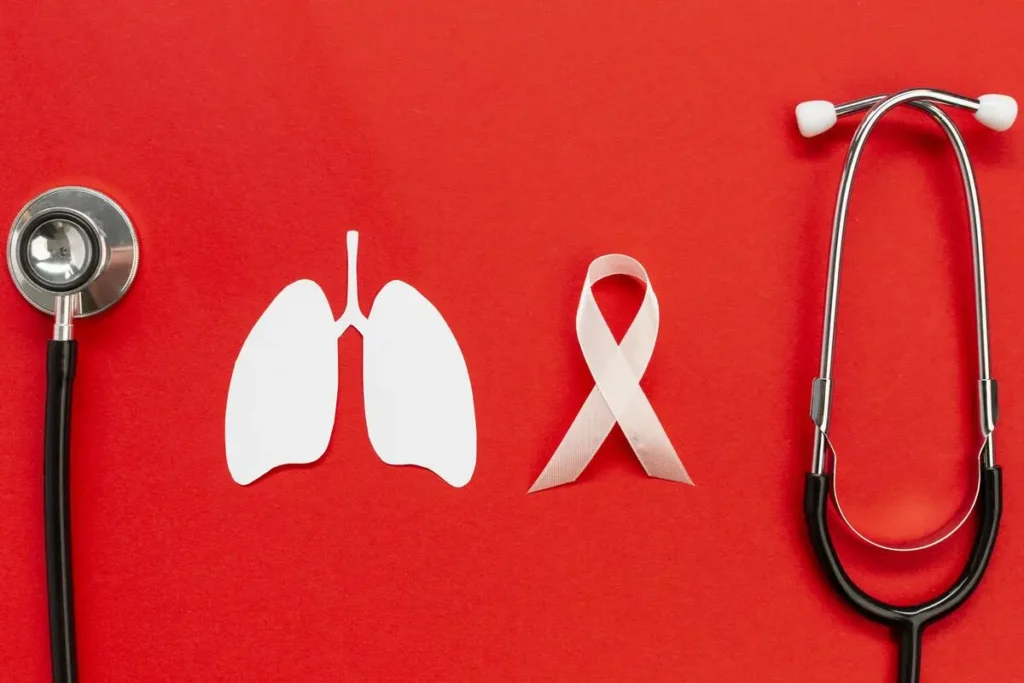Now Reading: Habits That Harm Heart Health: Workplace Dangers You Must Avoid
-
01
Habits That Harm Heart Health: Workplace Dangers You Must Avoid
Habits That Harm Heart Health: Workplace Dangers You Must Avoid

Many workplace habits silently damage heart health. Sedentary behavior, work stress, poor diet, and lack of sleep increase heart disease risk. This article explores harmful habits and provides practical strategies to protect your cardiovascular health through small, consistent lifestyle changes.
Heart disease remains a leading cause of death globally. Many daily habits, especially habits that harm heart health, develop silently at work. Understanding these dangerous patterns is crucial for protecting your cardiovascular system.
In this article, we’ll explore common habits that harm heart health and discover practical ways to protect your most vital organ.
By recognizing these habits that harm heart health, you can take immediate action to improve your wellbeing.
Understanding Heart Health and Its Importance
Your heart works tirelessly to pump blood throughout your body. Therefore, maintaining good heart health is essential for overall wellbeing.
Heart disease develops when plaque builds up in your arteries, narrowing them and reducing blood flow. This condition, called atherosclerosis, can lead to heart attacks and strokes.
According to 2025 data from the World Health Organization, cardiovascular diseases claim approximately 17.9 million lives each year globally. Moreover, these numbers continue to rise due to changing lifestyles and work patterns.
However, the good news is that most heart disease cases are preventable through lifestyle changes and avoiding habits that harm heart health.
Common Habits That Harm The Heart
Many everyday behaviors can damage your heart over time. Recognizing these harmful patterns is the first step toward better heart health.
Let’s explore the most dangerous habits that harm heart health that you might be practicing without realizing it.
Sedentary Lifestyle and Heart Disease
Sitting for long periods ranks among the most harmful habits that harm heart health. When you remain inactive for hours, your blood flow slows down.
As a result, your heart doesn’t work as efficiently. Additionally, sitting too much can lead to weight gain and high blood pressure.
Studies from 2025 show that people who sit for more than eight hours daily have a 33% higher risk of heart disease compared to those who sit less. Furthermore, the negative effects of prolonged sitting cannot be reversed by exercise alone.
Therefore, it’s crucial to break up sitting time throughout the day to avoid these dangerous habits that harm the heart.
Poor Diet Choices and Cardiovascular Risk
What you eat directly impacts your heart health. Diets high in processed foods, saturated fats, and sodium increase your risk of heart disease. These foods contribute to high cholesterol, high blood pressure, and inflammation in your arteries.
Conversely, a heart-healthy diet includes plenty of fruits, vegetables, whole grains, and lean proteins. The Mediterranean diet, for example, has been shown to reduce heart disease risk by up to 30%.
Making simple dietary changes can significantly improve your cardiovascular health over time and help eliminate habits that harm heart health.
Stress and Its Impact on Heart Health
Chronic stress triggers the release of hormones like cortisol and adrenaline. These hormones increase your heart rate and blood pressure. Over time, constant stress can damage your arteries and lead to heart disease.
Work-related stress is particularly concerning because it affects people for many hours each day. In fact, 2025 research indicates that people with high-stress jobs have a 40% higher risk of heart disease compared to those with low-stress positions.
Learning to manage stress effectively is crucial for avoiding habits that harm heart health.
Smoking and Alcohol Consumption
Smoking remains one of the most significant habits that harm the heart. The chemicals in tobacco smoke damage your blood vessels, reduce oxygen in your blood, and raise your blood pressure. Even occasional smoking can harm your heart.
Similarly, excessive alcohol consumption can lead to high blood pressure, heart failure, and stroke. While moderate drinking might have some benefits, the risks often outweigh the advantages.
The latest guidelines recommend limiting alcohol to protect your heart health and avoid these damaging habits that harm the heart.
Lack of Quality Sleep
Sleep is essential for heart health. During sleep, your heart rate and blood pressure naturally decrease, giving your cardiovascular system a chance to rest. Poor sleep or insufficient sleep prevents this recovery process.
Research from 2025 shows that people who sleep less than six hours per night have a 20% higher risk of heart disease.
Additionally, poor sleep quality is associated with higher levels of inflammation, which can damage your arteries over time. Addressing sleep issues is crucial to break free from habits that harm heart health.
Workplace Hazards for Your Heart
Our work environments significantly influence our heart health. Many modern jobs contribute to harmful habits that harm the heart that increase cardiovascular risk.
Let’s examine how workplace factors can damage your heart and what you can do about it.
Sedentary Jobs and Health Risks
Office work, driving, and other desk-bound jobs keep people sitting for hours. This sedentary behavior is increasingly common in today’s workforce. Unfortunately, these jobs pose significant risks to heart health.
Sitting for prolonged periods slows your metabolism and affects how your body processes fats and sugars. As a result, sedentary workers have higher rates of obesity, diabetes, and heart disease.
The latest research indicates that standing or moving for just five minutes every hour can significantly reduce these risks and counteract habits that harm heart health.
Work Stress and Heart Health
Workplace stress comes from many sources: tight deadlines, heavy workloads, difficult colleagues, or job insecurity. This stress activates your body’s fight-or-flight response, releasing stress hormones that increase heart rate and blood pressure.
Over time, chronic work stress can lead to hypertension, irregular heart rhythms, and increased inflammation.
Additionally, stress often triggers unhealthy coping mechanisms like poor eating, smoking, or excessive drinking, further harming heart health and reinforcing habits that harm heart health.
Heart Disease Risk by Occupation
Certain occupations carry higher risks for heart disease due to their specific demands. The table below summarizes heart disease risk levels across different professions based on 2025 research:
| Occupation | Heart Disease Risk Level | Primary Risk Factors |
| Office Workers | High | Sedentary behavior, stress, irregular meals |
| Transportation Drivers | Very High | Prolonged sitting, stress, irregular schedules, poor diet options |
| Healthcare Workers | High | Stress, long hours, shift work, emotional strain |
| Emergency Responders | Very High | Extreme stress, physical demands, irregular sleep |
| Sales Professionals | Moderate-High | Stress, irregular schedules, travel demands |
| Manual Laborers | Moderate | Physical strain (can be positive), but often poor access to healthcare |
| Teachers | Moderate | Stress, long hours, but typically more active |
| Remote Workers | High | Sedentary behavior, work-life balance challenges, isolation |
This data shows that heart disease risk varies significantly by profession. However, regardless of your occupation, awareness and preventive measures can help protect your heart health and reduce habits that harm heart health.
Lack of Physical Activity at Work
Most modern workplaces provide few opportunities for physical activity. Unlike previous generations, many workers today complete their tasks while seated. This lack of movement during work hours contributes significantly to poor heart health.
Even jobs that require some physical activity often don’t provide enough cardiovascular exercise. The American Heart Association recommends at least 150 minutes of moderate-intensity aerobic activity per week.
Unfortunately, few people achieve this through their work alone, leading to habits that harm the heart.
Recognizing the Warning Signs of Poor Heart Health
Early detection of heart problems can prevent serious complications. Therefore, recognizing warning signs is crucial for maintaining cardiovascular health. Let’s explore the symptoms that indicate potential heart issues.
Common warning signs of heart disease include:
- Chest pain or discomfort
- Shortness of breath
- Fatigue with minimal activity
- Dizziness or lightheadedness
- Heart palpitations or irregular heartbeat
- Swelling in your legs, ankles, or feet
- Pain in your neck, jaw, or back
If you experience any of these symptoms, especially during physical activity, consult your healthcare provider immediately. Remember, early intervention can prevent more severe heart problems down the line.
Regular health check-ups are also essential for monitoring heart health. Blood pressure checks, cholesterol tests, and diabetes screening can identify risk factors before they cause serious damage.
The latest guidelines recommend comprehensive heart health assessments at least once every two years for adults over 20.
Practical Steps to Protect Your Heart Health
Protecting your heart health doesn’t require drastic changes. Instead, small, consistent modifications to your daily habits can make a significant difference.
Let’s explore practical steps you can take starting today to eliminate habits that harm heart health.
Incorporating Physical Activity at Work
Adding movement to your workday is easier than you might think. First, consider standing or walking during phone calls.
Additionally, take the stairs instead of the elevator whenever possible. You might also try a standing desk or an under-desk elliptical machine.
Other effective strategies include:
- Walking meetings instead of sitting in conference rooms
- Setting a timer to remind you to stand up every 30 minutes
- Parking farther away from the entrance to increase walking time
- Doing simple stretches at your desk
- Taking a brisk walk during your lunch break
These small changes add up over time, significantly reducing your risk of heart disease and breaking habits that harm the heart.
Managing Work Stress Effectively
Stress management is crucial for heart health. First, identify your primary stressors at work. Then, develop strategies to address them. Effective stress management techniques include:
- Deep breathing exercises during stressful moments
- Taking short breaks throughout the day
- Setting realistic goals and priorities
- Practicing mindfulness or meditation
- Learning to say “no” to additional responsibilities when overwhelmed
- Seeking support from colleagues or supervisors when needed
Remember, managing stress is not a luxury but a necessity for heart health and avoiding habits that harm heart health.
Heart-Healthy Diet Choices
Your dietary choices significantly impact your heart health. Therefore, focus on incorporating heart-healthy foods into your meals.
Start by increasing your intake of fruits, vegetables, whole grains, and lean proteins.
Additionally, limit your consumption of:
- Processed foods
- Sugary beverages
- Excessive salt
- Saturated and trans fats
- Red meat
Meal planning can help you make healthier choices, especially during busy workweeks. Consider preparing nutritious meals and snacks in advance to avoid unhealthy convenience foods when time is limited.
Improving Sleep for Better Heart Health
Quality sleep is essential for heart health. Therefore, establish a consistent sleep schedule, even on weekends.
Additionally, create a relaxing bedtime routine to signal your body that it’s time to sleep.
Other strategies for better sleep include:
- Limiting screen time before bed
- Keeping your bedroom cool, dark, and quiet
- Avoiding caffeine and large meals close to bedtime
- Exercising regularly, but not too close to bedtime
- Managing stress through relaxation techniques
Aim for 7-9 hours of quality sleep each night to support your heart health and avoid habits that harm the heart.
Reducing Alcohol and Quitting Smoking
If you smoke, quitting is the best thing you can do for your heart health. Seek support through counseling, medications, or smoking cessation programs.
Remember, it’s never too late to quit and experience the benefits.
Similarly, if you drink alcohol, do so in moderation. The latest guidelines recommend no more than one drink per day for women and two for men.
Consider alcohol-free days each week to further reduce your risk and eliminate these dangerous habits that harm heart health.
Creating a Heart-Healthy Work Environment
Both employers and employees play roles in creating heart-healthy work environments. By working together, workplaces can significantly reduce cardiovascular risks.
Let’s explore strategies for creating a heart-healthy workplace.
Tips for Employers
Employers can implement several strategies to promote heart health among employees:
- Provide ergonomic workstations that encourage movement
- Offer standing desks or treadmill desks
- Create walking paths around the workplace
- Schedule regular breaks for physical activity
- Provide healthy food options in cafeterias and vending machines
- Offer stress management programs and resources
- Implement flexible work schedules to improve work-life balance
- Provide health insurance that covers preventive care
These investments in employee health can reduce healthcare costs, increase productivity, and improve job satisfaction while reducing habits that harm the heart.
Tips for Employees
As an employee, you can take initiative to improve your heart health at work:
- Take regular breaks to stand, stretch, or walk
- Pack healthy lunches and snacks
- Use your lunch break for physical activity
- Practice stress management techniques throughout the day
- Advocate for workplace wellness programs
- Encourage colleagues to join you in heart-healthy activities
- Communicate with your supervisor about workload concerns
Remember, small changes in your daily work routine can lead to significant improvements in heart health over time and help break habits that harm heart health.
Workplace Wellness Programs
Many companies now offer workplace wellness programs focused on heart health. These programs may include:
- Health screenings and risk assessments
- Fitness challenges and group exercise activities
- Nutrition education and cooking demonstrations
- Stress management workshops
- Smoking cessation support
- Weight management programs
Participating in these programs can provide motivation, resources, and social support for improving your heart health and avoiding habits that harm the heart.
Long-term Lifestyle Changes for Heart Health
Sustainable lifestyle changes are key to long-term heart health. Rather than quick fixes, focus on habits you can maintain for years to come.
Let’s explore strategies for lasting heart-healthy changes.
Sustainable Habits
Start by identifying one or two small changes you can make immediately. Once these become habits, gradually add more.
For example, begin by taking a daily walk during your lunch break. Then, add a goal to eat one extra serving of vegetables each day.
Remember that consistency is more important than perfection. If you have an off day, simply return to your healthy habits the next day without judgment.
Over time, these small changes will significantly improve your heart health and eliminate habits that harm heart health.
Setting Realistic Goals
Setting realistic goals increases your chances of success. Therefore, use the SMART framework when setting heart health goals:
- Specific: Clearly define what you want to achieve
- Measurable: Include concrete metrics to track progress
- Achievable: Set goals that are challenging but possible
- Relevant: Focus on changes that will improve your heart health
- Time-bound: Set a timeline for achieving your goals
For example, instead of vaguely deciding to “exercise more,” set a goal to “walk for 30 minutes during lunch breaks at least three days per week for the next month.”
Tracking Progress
Monitoring your progress helps maintain motivation and allows for adjustments. Consider using a journal, app, or wearable device to track:
- Physical activity levels
- Dietary choices
- Stress levels
- Sleep patterns
- Blood pressure and heart rate
Regular check-ups with your healthcare provider can also help track important health metrics and provide professional guidance on your heart health journey.
Conclusion
Protecting your heart health requires awareness and action. Many workplace habits can silently damage your cardiovascular system over time.
However, by recognizing these habits that harm heart health and implementing positive changes, you can significantly reduce your risk of heart disease.
Remember, small consistent changes lead to significant improvements in heart health.
Start today by incorporating more movement into your workday, managing stress effectively, making heart-healthy food choices, and prioritizing quality sleep.
Your heart works tirelessly for you—return the favor by breaking habits that harm the heart and embracing those that protect it.
FAQs
Common workplace habits that harm the heart include prolonged sitting, poor dietary choices, chronic work stress, smoking, excessive alcohol consumption, and lack of quality sleep. These habits contribute to conditions like high blood pressure, high cholesterol, and inflammation, increasing the risk of heart disease.
Sitting for extended periods slows blood flow and metabolism, leading to weight gain, high blood pressure, and increased heart disease risk. Studies from 2025 show that sitting for more than eight hours daily raises heart disease risk by 33%. Breaking up sitting time with movement every 30-60 minutes can help mitigate these risks.
Chronic workplace stress triggers the release of hormones like cortisol and adrenaline, which increase heart rate and blood pressure. Over time, this can damage arteries and lead to heart disease. Research from 2025 indicates that high-stress jobs increase heart disease risk by 40% compared to low-stress roles.
To improve heart health at work, incorporate movement by taking standing or walking breaks, use stairs instead of elevators, and consider standing desks. Manage stress with deep breathing or mindfulness, eat heart-healthy foods like fruits and vegetables, and prioritize 7-9 hours of quality sleep nightly.
Employees can take breaks to move, pack healthy lunches, and advocate for wellness programs. Employers can provide ergonomic workstations, standing desks, healthy food options, stress management resources, and flexible schedules. Workplace wellness programs, such as health screenings and fitness challenges, also promote heart health.

Ethan Cole is an American journalist with expertise across weather, tech, travel, and culture. With over 15 years of experience, he delivers sharp, reader-friendly stories that simplify complex topics and connect with audiences worldwide.
Stay Informed With the Latest & Most Important News
Previous Post
Next Post
-
 01Happy Gilmore 2: Your Complete Guide to the Golf Comedy Sequel
01Happy Gilmore 2: Your Complete Guide to the Golf Comedy Sequel -
 02Joe Root’s Test Runs: England’s Batting Genius in Focus
02Joe Root’s Test Runs: England’s Batting Genius in Focus -
 03The Bad Guys 2 (2025): Everything We Know So Far
03The Bad Guys 2 (2025): Everything We Know So Far -
 04Demon Slayer: Kimetsu no Yaiba The Movie: Infinity Castle Tickets – Your Guide to the Epic Anime Event
04Demon Slayer: Kimetsu no Yaiba The Movie: Infinity Castle Tickets – Your Guide to the Epic Anime Event -
 05The Naked Gun 2025: What to Know About the Comeback Comedy Starring Liam Neeson
05The Naked Gun 2025: What to Know About the Comeback Comedy Starring Liam Neeson -
 06RTX 50 Series Unleashed: Next-Gen Gaming Power Awaits!
06RTX 50 Series Unleashed: Next-Gen Gaming Power Awaits! -
 07Freakier Friday 2025: Full Cast Breakdown, Plot Twists, Musical Throwbacks & Streaming Info
07Freakier Friday 2025: Full Cast Breakdown, Plot Twists, Musical Throwbacks & Streaming Info














